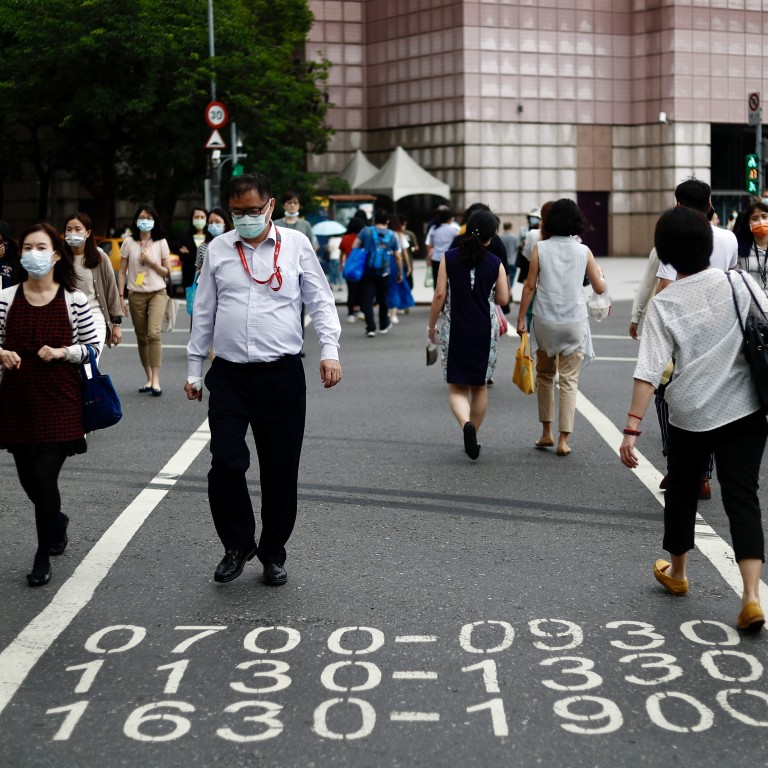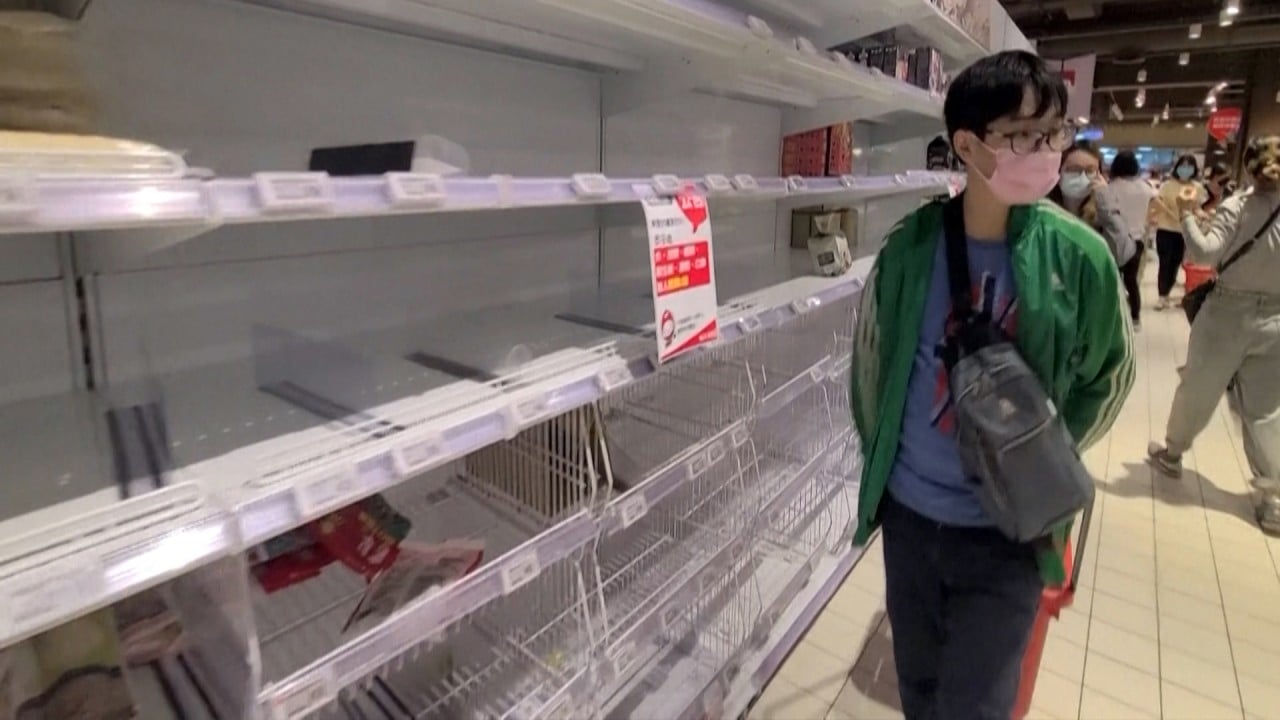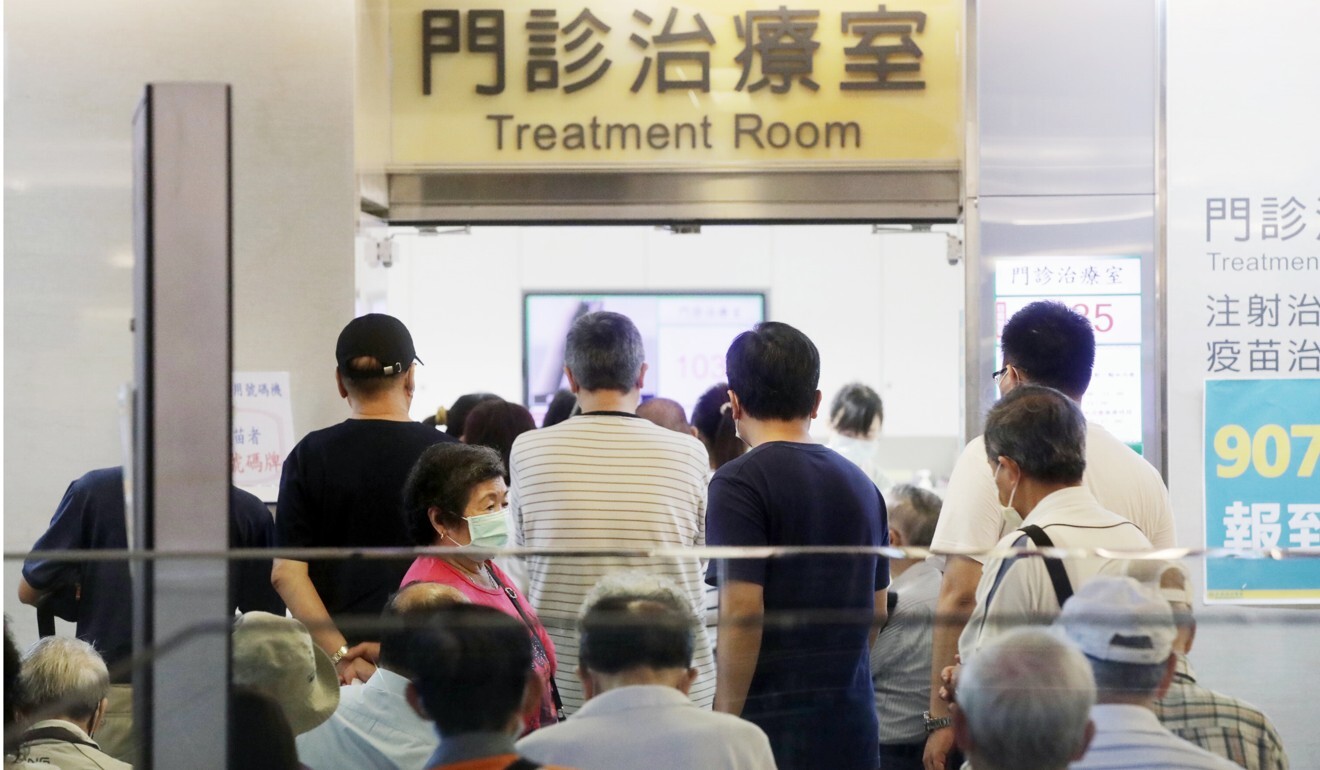
Taiwan’s low coronavirus vaccination rate under scrutiny as it battles spike in cases
- Health expert says island will remain vulnerable to the virus unless more people get immunised
- A record 333 locally transmitted infections were reported on Monday and new restrictions have been imposed
In the last three days, 719 locally transmitted cases have been reported – almost 10 times the number of local infections at the end of January. Monday alone saw a record 333 new local cases.
Health authorities have restricted indoor gatherings to five people and outdoor gatherings to 10 in Taipei and neighbouring New Taipei City until May 28, but stopped short of a lockdown.
On Monday Health Minister Chen Shih-chung announced that schools in the greater Taipei area would also be shut for two weeks from Tuesday, and an entry ban for non-residents including transit visitors will be imposed from Wednesday until June 19.

01:39
Panic buying in Taiwan as new Covid-19 rules imposed amid spike in coronavirus infections
Former health minister Yang Chih-liang said the focus had been more on containment.
“But there is a gap in the containment [approach] and an all-out vaccination effort is needed to close that gap,” Yang said.
Self-ruled Taiwan – home to 23.5 million people – has only secured 10 million doses of the AstraZeneca vaccine, with the first 300,000 arriving in March and April.
But as of Monday, just 194,678 people had received an AstraZeneca jab, according to the Central Epidemic Command Centre.
Taiwan’s success at keeping the pandemic at bay meant many people were reluctant to get vaccinated, but the latest outbreak has changed that. However, health experts say that even as more people rush to get the jab, the vaccination rate is still too low compared with those of other countries.

“Taiwan had been so successful in controlling the outbreak, so many people thought they didn’t need to be vaccinated as it was safe in Taiwan,” said Lee Bing-ying, a paediatrician with the Paediatric Infectious Diseases Society of Taiwan.
Lee said some people believed it was not necessary for the majority of the population to be inoculated to achieve herd immunity.
“But to reach community immunity, more than 70 per cent of people must be vaccinated,” he said.
Lee added that without a higher vaccination rate the island would remain vulnerable to the virus, regardless of how successful it was in containing any outbreaks through other measures.
He also said concerns about side effects of the AstraZeneca vaccine such as blood clots were another reason Taiwanese were reluctant to get the jab.
Chinese disease expert warns of virus spread and new variants if guard let down
But with the scramble to get vaccinated in the past week there are now fears the AstraZeneca doses may run out if new supplies do not arrive on time, according to Su Ih-jen, former head of the Taiwan Centres for Disease Control.
Meanwhile, there are concerns over whether hospitals can cope with the surge in cases as intensive care units in Taipei and New Taipei City fill up.
As of Monday, Taiwan had reported a total of 2,017 infections and 12 deaths since the start of the pandemic.

